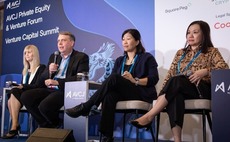
J-Star seals first secondary exit
Japan has seen 61 private equity secondary exits since 2011 – more than the combined total for the 10 years before that. This surge in activity can largely be traced back to buyouts from the years leading up the global financial crisis. Investors want to exit, and with weak public markets and uncertainty among strategic players, secondaries are a welcome source of liquidity.
For J-Star, which completed its first-ever secondary exit last week, selling to another PE investor was a practical necessity. Repair business Burn Holdings was keen to retain its independence, so despite interest from a number of strategic buyers, the PE firm opted to sell its majority stake to two financial players - Shinsei Corporate Investment and Creation Capital.
Beyond that, the rationale was fairly standard. "We are a solution capital provider. When we invested the solution required was coming up with a concrete holding structure so the subsidiaries could function and to focus on improving earnings," explains Greg Hara, J-Star's president. "These have been achieved."
Burn Holdings has three subsidiaries, the largest of which is Burn Repair, a final-touch repair service used by homebuilders and construction materials manufacturers to clean up properties post-construction and pre-sale. This function was previously fulfilled by small local contractors, but as developers began to work on larger projects an opening emerged for a large-scale provider.
There are 30 Burn Repair outlets nationwide. It also provides post-sale services such as property inspections. Burn Holdings' other businesses, HouseBox and Spec, sell repair materials and offer interior finishing services.
J-Star acquired a majority stake in the company for around $5 million in 2011. Founder Akio Hayashi held on to a minority interest and he remains an investor under the new ownership. Burn Holdings recorded sales of JPY4.7 billion ($43 million) in 2011 and EBITDA of just under JPY200 million. Forecast sales and EBITDA for the year ending September 2014 are JPY7.4 billion and JPY500 million, respectively. Earnings growth is said to have contributed about 70% of J-Star's overall return on the investment.
The PE firm's operational contribution fell into three categories. First, it formed a holding company structure for the various subsidiaries in order to improve governance and operating efficiency. Second, headcount increased from 524 to 783 and an mentor system was used to reduce turnover. Third, steps were taken to boost profitability.
"We introduced information systems and set key performance indicators," says Hara. "This was important because prior to our investment the company focused on everything, whether profitable or not. After our investment, the focus switched to the earnings contribution of different businesses."
As to what Shinsei and Creation will focus on, Burn Holdings is ultimately seen as a likely IPO candidate.
Latest News
Asian GPs slow implementation of ESG policies - survey
Asia-based private equity firms are assigning more dedicated resources to environment, social, and governance (ESG) programmes, but policy changes have slowed in the past 12 months, in part due to concerns raised internally and by LPs, according to a...
Singapore fintech start-up LXA gets $10m seed round
New Enterprise Associates (NEA) has led a USD 10m seed round for Singapore’s LXA, a financial technology start-up launched by a former Asia senior executive at The Blackstone Group.
India's InCred announces $60m round, claims unicorn status
Indian non-bank lender InCred Financial Services said it has received INR 5bn (USD 60m) at a valuation of at least USD 1bn from unnamed investors including “a global private equity fund.”
Insight leads $50m round for Australia's Roller
Insight Partners has led a USD 50m round for Australia’s Roller, a venue management software provider specializing in family fun parks.






